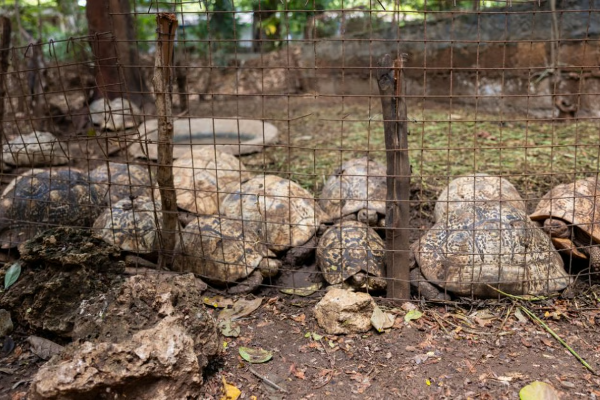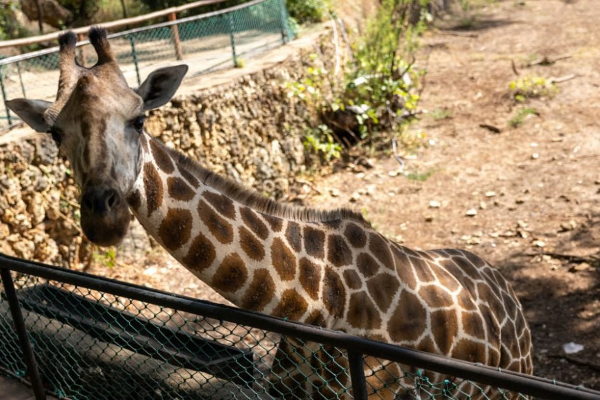A new investigative report by World Animal Protection Africa has raised alarm over the conditions inside wildlife farms in Kenya, calling for an urgent ban on commercial wildlife farming.
Titled Behind Bars: Lifting the Lid off Kenya’s Cruel Wildlife Farming, the study documents widespread suffering among farmed animals, serious risks to public health, and threats to conservation and Kenya’s international reputation.
Over a period of months, researchers engaged in undercover fieldwork in captive wildlife facilities across Kenya. They found that animals such as crocodiles, giraffes, ostriches, tortoises, monkeys and hippos are bred, confined, and exploited under the pretext of conservation or for tourism revenue.
The report outlines consistent welfare abuses: overcrowding, untreated injuries, parasite infestations, inadequate nutrition, and stress-related behaviours are pervasive.
One facility showed severe neglect, including as described by the investigators: “All facilities investigated showed serious welfare concerns, including overcrowding, untreated injuries, parasite infestations, poor nutrition, and severe stress behaviours.”
Public health and conservation risks
In addition to animal welfare, the report raises red flags about public health. Many farms that offer close contact between animals and visitors lack basic hygiene measures—such as handwashing facilities—making zoonotic disease transmission a serious concern.
Given the experience of COVID-19, the report warns that keeping wild animals in overcrowded and unsanitary conditions creates “the perfect conditions for the spread of zoonotic diseases, which can have devastating consequences for communities and economies.”
Conservation is also deemed undermined. Some farms supplement captive populations with wild-caught animals, creating potential channels for illegal trafficking and threatening biodiversity. These practices run counter to global agreements like CITES and pose direct threats to indigenous wildlife populations.

Voices demanding change
Edith Kabesiime, Wildlife Campaign Manager at World Animal Protection, stated:
“Our findings confirm that wildlife farming in Kenya is not about conservation, but rather about profit at the expense of animal welfare.”
“This report sheds light on the suffering endured by farmed wild animals and the urgent need for policy change.”
“Today as we officially hand over the report to the Ministry of Wildlife and Tourism in Kenya, we urge them to take leadership in ending wildlife exploitation and setting a precedent for wildlife friendly policies in the region.”
What researchers want done
World Animal Protection is urging the Kenyan government to take immediate steps. Recommendations include performing a comprehensive national audit of wildlife farms, shutting down and prosecuting exploitative operations, rescuing and relocating animals to accredited sanctuaries, enforcing a moratorium on the expansion of wildlife farming, and phasing out existing farms.
They also call for laws to be strengthened to prevent illegal trade, ban harmful animal-visitor interactions, and raise awareness among the public about the dangers posed by wildlife farming.
Wildlife farming in Kenya, according to the report, not only perpetuates cruelty but also poses reputational, ethical, ecological and health-based risks.
The group’s call is therefore for a ban on the commercial exploitation of wild animals—a measure they argue Kenya must adopt to protect animal welfare, safeguard biodiversity, and uphold its standing as a global conservation leader.








